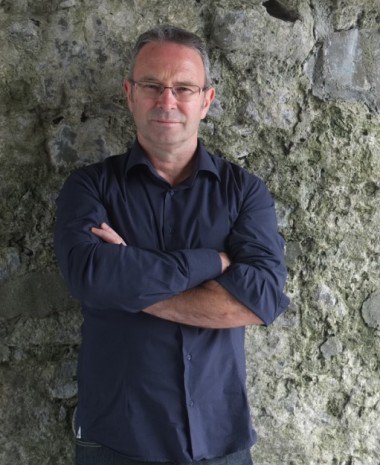Book Review| Solar Bones by Mike McCormack
Marcus Conway is a creature of habit. It is daily rituals that form the “solar bones” upon which his and the lives of those around him are built, and which give Mike McCormack’s new novel (published by Tramp Press) its title. When we are introduced, however, he is confused and out of place, at home in the middle of the week. It is when Marcus is taken outside of his daily routines and duties as a father, husband and civil engineer that we are presented with a complex portrait of a Mayo family. Marcus, is married to Mairead with whom he has raised two children, artist Agnes and cause for concern Darragh.
The rural family is not a new subject in Irish fiction, but McCormack has new ways to situate his characters in the landscape. Marcus is narrating, and it appears he is not an overbearing patriarch, or an inactive and isolated figure, but a reasonably sensitive man who realises his dependence on others. He is acutely aware of instances in which he has failed them.
He remembers the pride he has taken in supporting his family, though he also recognises the role as mundane. This may be an oversight, as there is great drama and conflict in this outwardly quiet existence. Moments of familial conflict and strife are placed amidst political posturing, civic ineptitude and cronyism. The fabric of Irish social and political history encroaches on the lives of the Conways, sometimes in the most intimate circumstances.

McCormack’s approach to form is also quite different. The prose is unpunctuated meaning dialogue between characters is intermingled and the distinction between thought and speech is unclear. There are also temporal shifts, subject to Marcus’ line of thought, and we often forget whether we are reading lived experience or memory.
The novel’s main ontological twist is revealed in the blurb: Marcus Conway is dead, but this is not the end of the story. It is unclear what realm of consciousness he is addressing us from, and this is what makes the narrative so compelling. Removed from his living context, what is Marcus’ purpose? To remember and reflect upon those he loves? Is his story telling vocational, perhaps even divine?
We learn of a brief spell in the seminary at Maynooth in Marcus’ youth. His prodigal son Darragh, whose own loquacious prophesising grates on him, teases him that he has traded one faith for another. McCormack has described the book as an “ode to engineers” and it is true that Marcus locates his work in a higher, cosmic register, recognising the almighty as an absentee engineer. He is, however, humbled rather than inflated by the citadel’s worth of civic projects he has completed during his career.
He also perceives the link between his emotional life and the objects that surround him. He reminisces about tools splayed out on a shed floor, his father dismantling them and putting them back together to verify their working order. These childhood memories appear to have had a profound effect on the engineer’s psyche. Newspaper articles, extensions on neighbouring houses and his daughter’s are reduced to their component parts in Marcus’ somehow rambling and methodical lines of thought
In particular, he fondly remembers Mairead examining the wear on their bread knife, reflecting on this evidence of its role in their life together. He delights in a shared appreciation for the journey of the knife’s component materials from the earth to them. Though often euphoric, or dejected, Marcus is never sentimental. However, his perceptions, though based in reality and analysis, are coloured by his emotions. (Sound familiar?) At his most celestial, his physical being is a “harmonic”, a chance confluence of light and circumstance in a chaotic universe. At his most pessimistic, his ruminations on Ireland’s financial crisis are biblical in tone.
Marcus Conway’s (after) life ultimately serves a higher purpose. McCormack has created a narrative through which a multitude of strands of light are being refracted. Marcus is speaking about his memories and there is beauty and truth in the distortion of people and place. The objects Marcus holds dear, and the bodies of those he loves, have an elemental relationship to the earth. In a similar way, his story and its telling are of the emotional, intellectual and ideological landscape in which he has lived.
Featured Image – Conor O’Donovan

